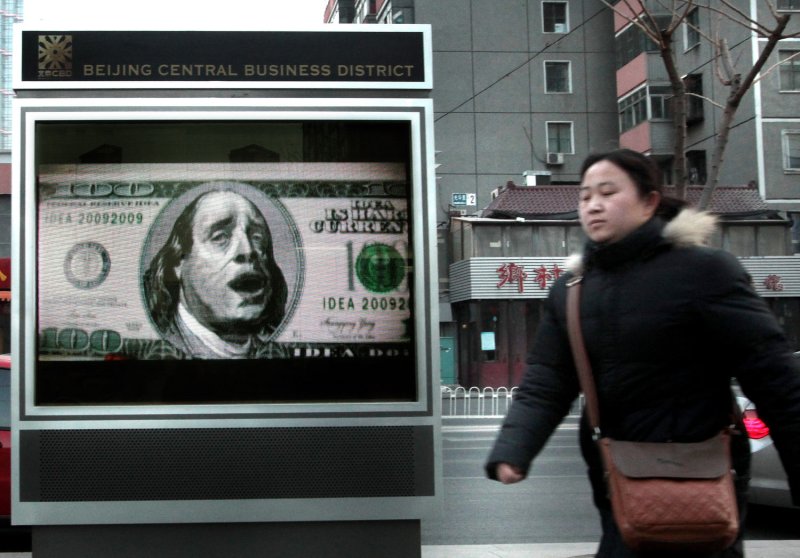A Chinese woman walks past a television billboard, featuring a distressed Benjamin Franklin on a USD100 bill, in downtown Beijing on December 08, 2009. China has expressed concern about its huge stock of U.S. Treasury securities, Chinese Premier Wen Jiabo recently said. Beijing has become increasingly vocal about what it sees as U.S. economic mismanagement making U.S. investments riskier. UPI/Stephen Shaver |
License Photo
BEIJING, Dec. 11 (UPI) -- Industrial production in China rose 19.2 percent in November from the same month a year ago, adding to upbeat data despite lower exports, the government said.
Figures released Friday showed imports up 26.7 percent from a year ago, while exports were down 1.2 percent, The New York Times reported Friday.
Both imports and exports are depressed in China compared to 15 months ago. In August 2008, exports totaled $134.9 billion, while imports hit $106.2 billion. In November, exports were down to $113.7 billion, while imports slid to $94.6 billion.
"On a month-on-month basis, growth momentum remains steady," even if figures are lower than before the recession took hold, said ANZ economist Li-Gang Liu.
Despite lower trade, China's gross domestic product is still expected to rise more than 8 percent in 2009, a rate that is the envy of all major economies.
Domestic spending, up 15.8 percent in the retail sector from a year ago, is partly making up for the drop in exports.
The shift includes a shrinking trade surplus, which was $24 billion in October and $19.1 billion in November.
Economists at Societe Generale have concluded, "trade deficits are inevitable," especially if the price of imported commodities increases.










